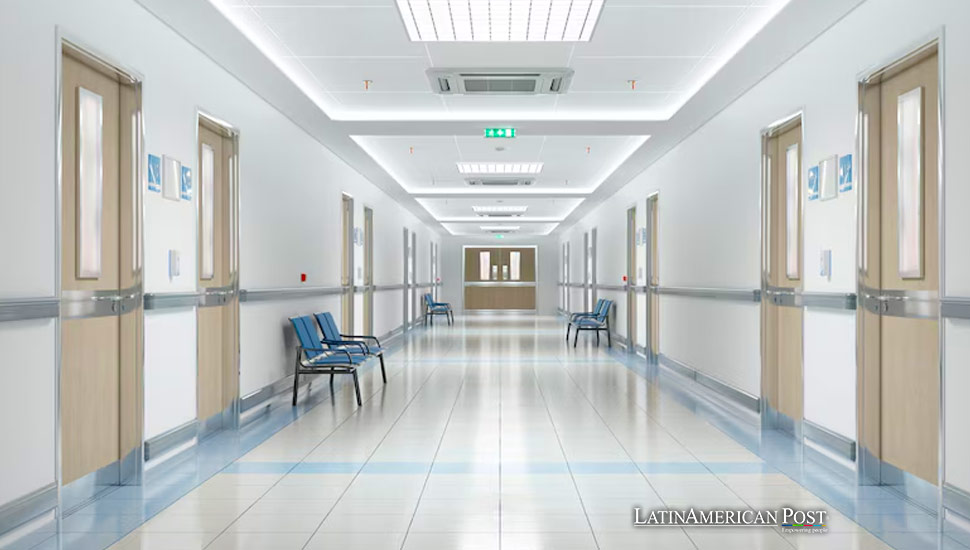Puerto Rico Hospitals Face Surge in Cyberattacks Amid Rising Concerns

Over 40 hospitals in Puerto Rico have been targeted by cyberattacks, with thousands of hacking attempts reported monthly. Health services administrator Ramón Alejandro Pabón highlights the urgent need for enhanced cybersecurity measures to protect critical healthcare infrastructure.
The healthcare system in Puerto Rico is under siege from a significant cyber threat. Ramón Alejandro Pabón, the administrator of health services and hospitals in Puerto Rico, issued a stark warning on Tuesday about the relentless cyberattacks targeting over 40 hospitals on the island. “More than 40 hospitals have fallen victim to these attacks, with thousands of hacking attempts reported monthly,” Pabón revealed in a statement, citing a Joint Cybersecurity Advisory (CSA) issued by the Federal Bureau of Investigation (FBI) and the Department of Health and Human Services (HHS).
Pabón emphasized the necessity for local healthcare institutions to “redouble efforts and, above all, stay alert” to new technological advancements to prevent such attacks. “The FBI and HHS are issuing this Joint Cybersecurity Advisory to disseminate known indicators of compromise and tactics, techniques, and procedures used in a social engineering campaign targeting public health entities and healthcare providers,” he added.
The healthcare sector, particularly in regions like Puerto Rico, has become an attractive target for cybercriminals. These threat actors are drawn to the sector’s size, technological dependence, and access to sensitive patient health information. Pabón explained that cyber attackers had employed sophisticated techniques such as registering phishing domains that differ by a single character from the legitimate domain of the targeted organization. These attacks often involve spear-phishing campaigns directed at crucial personnel, like the organization’s Chief Financial Officer, leveraging personal identification information from previous data breaches.
According to data from FortiGuard Labs, Fortinet’s threat analysis and intelligence unit, more than 1.3 billion cyberattack attempts were recorded in Puerto Rico in 2023. This alarming statistic underscores the escalating threat, with expectations of an increase in such incidents in the current year.
The rise in cyberattacks on healthcare institutions in Puerto Rico reflects a broader global trend. Cybersecurity firm Check Point reported a 71% increase in ransomware attacks on healthcare organizations worldwide in 2021 alone. This trend is partly driven by the COVID-19 pandemic, which has stretched healthcare resources and made institutions more vulnerable to cyber threats. Similar incidents have been reported in Latin America, highlighting a regional issue that requires coordinated efforts to address effectively.
The Impact on Healthcare Services
The Devastating Impact of cyberattacks on Healthcare Services. When hospitals and healthcare providers are targeted, the disruption can be catastrophic, leading to compromised patient care, delayed critical procedures, and the breach of patient data confidentiality. For instance, a ransomware attack can paralyze essential systems, forcing surgeries, diagnostics, and even emergency services to grind to a halt. The financial implications are also staggering, with recovery costs, legal consequences, and potential regulatory fines.
The healthcare sector’s technological infrastructure in Puerto Rico is integral to its operations. Any breach or disruption can cascade, leading to widespread operational challenges. Pabón’s call to action for local institutions to enhance their cybersecurity measures is crucial to safeguarding these essential services. He stressed the importance of adopting advanced security protocols, regular staff training, and investing in robust cybersecurity technologies.
The HHS and FBI advisory highlights the need for comprehensive security strategies. It includes recommendations such as implementing multi-factor authentication, conducting regular security assessments, and ensuring timely software updates. These measures are vital in creating a resilient defense against increasingly sophisticated cyber threats.
Strategies for Enhanced Cybersecurity
Addressing the cyber threats facing Puerto Rico’s healthcare system requires a multi-faceted approach. Firstly, there must be an investment in cybersecurity infrastructure. This includes state-of-the-art firewalls, intrusion detection systems, and secure data encryption protocols. The deployment of advanced threat detection and response systems can help identify and mitigate potential threats before they cause significant harm.
Secondly, continuous training and awareness programs for healthcare staff are essential. Cybersecurity is not solely a technological issue but also a human one. Phishing attacks often target individuals through deceptive emails or messages and rely on human error. Training staff to recognize and respond appropriately to suspicious activity can significantly reduce the risk of successful attacks.
Furthermore, the importance of collaboration between the public and private sectors cannot be overstated. Sharing threat intelligence and best practices can significantly bolster the healthcare sector’s overall security posture. Initiatives like the Joint Cybersecurity Advisory from the FBI and HHS play a pivotal role, providing critical information to help organizations mount a united defense against cyber threats.
In addition, regulatory frameworks need to be strengthened. Governments and regulatory bodies must enforce stringent cybersecurity standards and ensure compliance through regular audits and assessments. In Latin America, where healthcare infrastructure varies significantly, harmonized regulations can provide a consistent security baseline across the region.
The Escalating Cyber Threat: A Call for Proactive Defense Strategies. The increasing frequency and sophistication of cyberattacks on healthcare institutions in Puerto Rico serve as a stark reminder of the evolving threat landscape. As cybercriminals become more adept, the need for robust cybersecurity measures is becoming more urgent than ever. Pabón’s alert underscores the critical importance of not just reactive, but proactive defense strategies to protect sensitive health information and ensure the uninterrupted provision of healthcare services.
Similar challenges persist in Latin America, with healthcare systems across the region facing mounting cyber threats. The response to these threats must be coordinated and comprehensive, involving technological advancements, regulatory enforcement, and public-private partnerships.
Ultimately, the goal is to build a resilient healthcare infrastructure that can withstand cyberattacks and continue to provide essential services without interruption. Puerto Rico’s experience serves as a case study in the importance of vigilance, preparedness, and continuous improvement in cybersecurity practices.
As the healthcare sector continues to digitize and integrate new technologies, the focus on cybersecurity must remain paramount. Protecting patient data and ensuring the seamless operation of healthcare services are critical to maintaining public trust and delivering high-quality care. The lessons from Puerto Rico’s experience can guide efforts across Latin America and beyond, fostering a more secure and resilient healthcare environment.
Also read: Scientists Find Puerto Rico Water Contaminated by Coal Ash
Ramón Alejandro Pabón’s alert about the cyberattacks on Puerto Rico’s hospitals highlights a pressing issue that requires immediate attention. By adopting comprehensive cybersecurity measures and fostering collaboration, the healthcare sector can defend against these threats and continue to provide vital services to the population.





